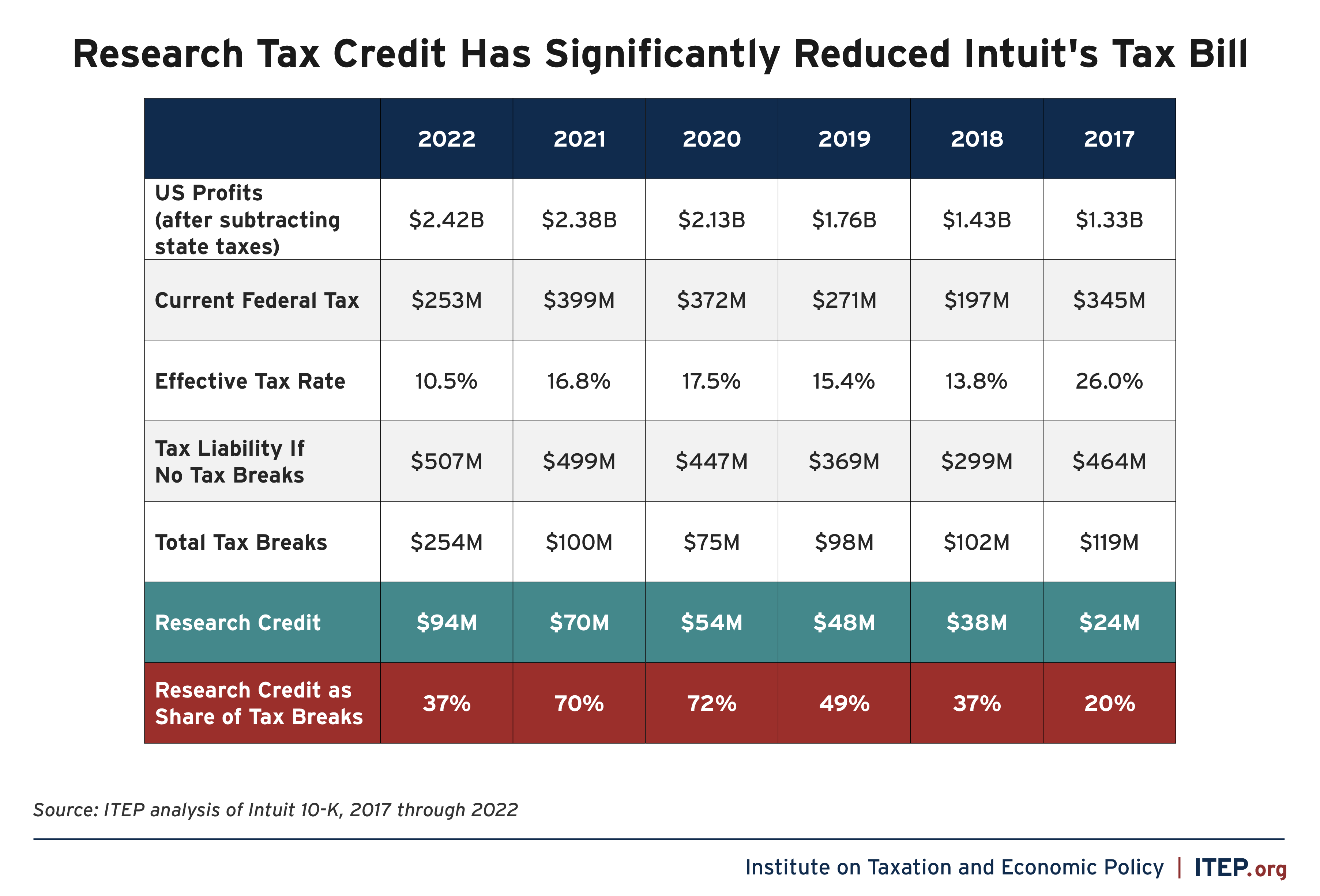The tax preparation industry has for years lobbied to prevent the IRS from providing a tool that would allow Americans to file their taxes online for free. Recent public disclosures from Intuit, the maker of TurboTax and the leader of the pack, show that tax breaks the company claims for doing “research” might be larger than what it would cost the IRS to provide this online tool for free to millions of taxpayers.
The Inflation Reduction Act, passed in 2022, instructed the IRS to evaluate and project the cost of developing, implementing, and administering a free direct e-file tax return. The agency estimates that providing this service to taxpayers with relatively straightforward returns would cost somewhere between $64 million and $249 million annually.
In other words, the cost would be relatively tiny. The IRS’s budget was just over $14 billion last year, and Americans will pay another $14 billion to private tax preparation companies or professionals according to one estimate. The cost of the IRS providing free direct filing online would be, at most, 2 percent of those amounts.
According to the financial disclosures that Intuit makes public and submits annually to the Securities and Exchange Commission, the company claimed a research tax credit of $94 million in 2022 alone, higher than the bottom range of the estimate of free file’s full cost.
That year, the research credit made up more than a third of the company’s total income tax break, as illustrated in the table below. This is another way of saying the credit explains more than a third of the difference between Intuit’s effective tax rate that year and the statutory rate, which was 21 percent starting in 2018 when the Tax Cuts and Jobs Act went into effect.
Despite the low relative cost and wide interest in the direct file program from taxpayers, corporate lobbyists for the paid tax preparation industry have argued that the program is too costly – in addition to other ludicrous claims about the program.
The IRS historically agreed not to develop its own direct file program as long as the private tax preparers entered a Free File Alliance and provided free filing to eligible taxpayers. The tax preparation industry did their best to hide these free services from taxpayers – going so far as adding code to their websites so that Free File would be hidden on Google search results. Intuit was sued for charging customers who were eligible for Free File. The company eventually settled for $141 million.
Intuit decided to leave the Free File coalition altogether in 2021, curiously citing the success of the coalition and suggesting that Americans no longer had a need for an option to file their taxes for free. The company certainly did not suffer financially for the decision. By 2022, Intuit’s “Consumer” segment, primarily TurboTax, had grown to nearly $4 billion in annual revenue, an 80 percent increase from just five years prior.
The Government Accountability Office (GAO) investigated the shortcomings of private Free File services last year and concluded that the “IRS should develop additional options for taxpayers to file for free.” The GAO study found that while 71 percent of taxpayers were eligible for these services, just 3 percent of taxpayers eventually filed this way. The study suggested that the lack of participation was in part due to confusion about the Free File program over misleading advertising and lack of outreach.
People should not have to pay a private company to pay their taxes to the government. It is bad enough that Intuit lobbies Congress and spreads disinformation to maintain this costly status quo. It is even worse that American taxpayers are subsidizing the company’s “research,” maybe even research related to the tax software that Americans pay Intuit for.







